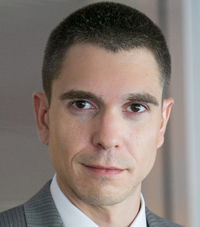Chris Battle will be laid to rest in Savannah, Ga., this week. His grave overlooks the Wilmington River in the shade of old oak trees in the historic Bonaventure Cemetery. It’s a place he chose himself and about which he wrote beautifully in “The Garden Cemetery.” In his words, “It is a languid, inefficient summer view. It is my youth, this place marking my death. It’s perfect.”
Since Chris’ death last week, there has been a vast outpouring of praise and remembrance from around the country. My friend and fellow contributor Rich Cooper commented on the thousands of people who have flocked to Facebook, to the Kidney Cancer Chronicles, even to this site, to read about and leave messages for Chris. Rich called it, “the power of Battle.” Chris was an important man to many people in many ways. To me, he was a writer, as well as a treasured mentor and a dear friend. Little more than a month ago we sat in his backyard garden, discussing topics for a novel he planned to write. I want to read that book, and the knowledge that I will not is a deep wound, one I can only cauterize with my memories of a great writer, the greatest I’ve known.
Chris was a writer’s writer, a true artist. His was the kind of breathless prose that skipped between clear-eyed insight and lyrical musing. Like a child hopping rope, a kind of effortless, joyful play. His words read easy, but he worked for his writing. He thought through writing, refining and sharpening his ideas to crystal clarity and a razor’s edge. He compiled and cultivated an enormous mental dictionary (bigger than most could realize), and he approached writing with passionate precision. As he wrote:
“There is always one right word. It’s not always easy to find that exact word. It is easier to use useand be done with it. And though there are a lot of words in the English language best avoided, they exist because there is the potential that, in a particular time and a particular place, they are the most perfect fit.”
While he could be lighthearted and was often devastatingly funny, Chris’ writing offered glimpses of a serious, perceptive, contemplative mind. A man at home with his thoughts and questions, guiding his life’s rowboat through turbulent, deep intellectual waters most people dare not explore. I suppose his years fighting cancer forced him to look squarely at profound and answerless questions, but I think he braved these mysteries regardless. His intelligence and sometimes solitary nature inevitably led him there.
Beyond his superb personal prose, Chris put his writing to work in journalism, government, politics and public relations. But he always said he wasn’t “just a writer;” he was a “communications strategist.” Indeed, his strategic thought was as impressive as his writing, and it made you feel powerful and clever to play a part in his grand plans.
We were both Hemingway disciples, putting “Papa” on the highest pedestal as the pinnacle of great writing. It was a point of bonding between us. In dissecting Hemingway’s writing, we explored our own – the nuance of formats, meter, phrasing, grammar and word choice. We approached the craft as analysts as well as artists. Throughout this, I realized one of Chris’ greatest qualities. He treated everyone’s ideas and abilities as valid in their own right, not somehow inferior or immature because they emerged from people less experienced or skilled than himself. When we talked, he acted as though we were writing equals, though I am but an apprentice next to his mastery.
In life, sometimes it seems like the best of us get the worst of it. A gifted, honorable artist like Chris dies a young man while the crotchety old bastard down the street who hangs up the “No Trick or Treating” sign every year lives more than a century. We all know life is unfair, but that doesn’t make it right. It’s enough to make you angry.
But then, I pause. It’s a muggy August night in Alexandria, Va. The Potomac smells sweet. This is the place Chris called home. Although his family is gathered in Savannah tonight, I almost feel like he’s here with me as I write. I can hear his gentle, halting laugh; can see his hand reaching over my shoulder, thin finger hovering near the screen to point out sentences that need adjusting. I realize Chris hasn’t left. As I sit here, hearing his words reverberate in my memory like the crickets chirping under the crescent moon, I know that while Hemingway influences my writing, Chris is a part of my writing. For the rest of my life, Battle will look over my shoulder, guiding how I write, how I create.
And I’m not alone. There are legions of communicators throughout the country who worked with him and learned from him. We all carry some of Chris’ brilliance, and he is a part of what we do. The great artist has set down his pen, but his writing continues, picked up by the thousands of us who became better writers because of him. When we in turn teach and influence others – our readers, our peers and our descendants – the presence of Chris’ example and style compounds, shaping how we all write. Because of that, Chris yet lives. When I someday teach my children what I know of writing and the world, I will pass on Chris’ lessons. He will live with them too. He will echo for generations.
Chris’ era of creation has ended, but it birthed his era of influence. In reading the notes posted by colleagues, friends and admirers, it’s inspiring to realize just how many people will carry him forward. We are all Chris’ apostles, and so long as there are writers, he will endure. That is the power of Battle.


